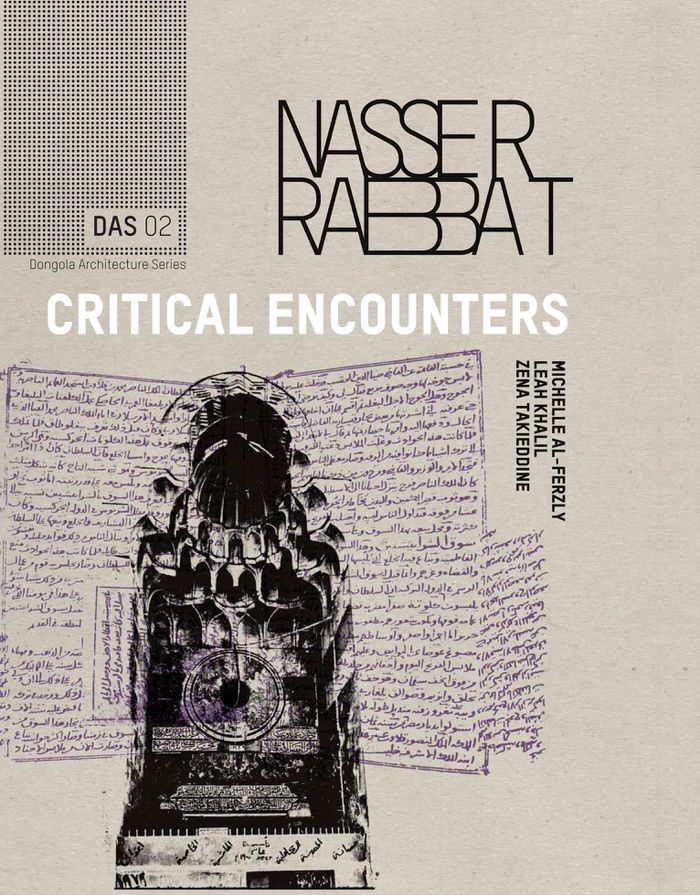$39.95
(available in store)
Summary:
This book shows how, even in the most difficult conditions–forced displacement, trauma, and struggle–design can help create a life worth living. ''Design to live'' documents designs, inventions, and artworks created by Syrian refugees living in the Azraq Refugee Camp in Jordan. Through these ingenious and creative innovations–including the vertical garden, an arrangement(...)
October 2021
Design to live: Everyday inventions from a refugee camp
Actions:
Price:
$39.95
(available in store)
Summary:
This book shows how, even in the most difficult conditions–forced displacement, trauma, and struggle–design can help create a life worth living. ''Design to live'' documents designs, inventions, and artworks created by Syrian refugees living in the Azraq Refugee Camp in Jordan. Through these ingenious and creative innovations–including the vertical garden, an arrangement necessitated by regulations that forbid planting in the ground; a front hall, fashioned to protect privacy; a baby swing made from recycled desks; and a chess set carved from a broomstick–refugees defy the material scarcity, unforgiving desert climate, and cultural isolation of the camp. Written in close collaboration with the residents of the camp, with text in both English and Arabic, ''Design to live,'' reflects two perspectives on the camp: people living and working in Azraq and designers reflecting on humanitarian architecture within the broader field of socially engaged art and design. Architectural drawings, illustrations, photographs, narratives, and stories offer vivid testimony to the imaginative and artful ways that residents alter and reconstruct the standardized humanitarian design of the camp–and provide models that can be replicated elsewhere. The book is the product of a three-year project undertaken by MIT Future Heritage Lab, researchers and students with Syrian refugees at the Azraq Refugee Camp, CARE, Jordan, and the German-Jordanian University.
$115.00
(available to order)
Summary:
This first book in Dongola’s Architecture Series, a platform to publish multi-layered readings of conversations with Arab architects working across the region's contemporary landscapes. Ammar Khammash’s work in building, painting, sculpture and music, together with his social, geological and botanical research break and intersect with every possible disciplinary mold in(...)
Ammar Khammash: Notes on formation
Actions:
Price:
$115.00
(available to order)
Summary:
This first book in Dongola’s Architecture Series, a platform to publish multi-layered readings of conversations with Arab architects working across the region's contemporary landscapes. Ammar Khammash’s work in building, painting, sculpture and music, together with his social, geological and botanical research break and intersect with every possible disciplinary mold in favor of an ongoing momentum of production and dissemination of knowledge. His practice is an act of mutual formation, an ongoing collaboration between himself and nature, which is, in his regard, the only real architect. Rather than package the practice, this book aims to reveal associations, untangle connections, and trace wandering threads. In exploring these various processes of formation – material, intellectual, and otherwise – this book works to offer a reading of architecture that draws on experimentation, context sensitivity and cultural introspection as main foundations.
Architecture Monographs
$102.00
(available in store)
Summary:
The second installment in the Dongola Architecture Series, dedicated to the great voices of contemporary architecture in the Arab culture, delves into the life and work of the distinguished Syrian architect and architecture historian Nasser Rabbat. This publication underscores the profound connection between Rabbat's upbringing in Syria during a period of significant(...)
Nasser Rabbat: Critical encounters
Actions:
Price:
$102.00
(available in store)
Summary:
The second installment in the Dongola Architecture Series, dedicated to the great voices of contemporary architecture in the Arab culture, delves into the life and work of the distinguished Syrian architect and architecture historian Nasser Rabbat. This publication underscores the profound connection between Rabbat's upbringing in Syria during a period of significant political transformation and his development as a critical thinker and storyteller. His journey from a reluctant choice to study architecture to becoming a prominent figure as the Director of the Aga Khan Program for Islamic Architecture at MIT illustrates his unceasing commitment to expanding the horizons of historiography, particularly within the realm of non-Western voices. "Nasser Rabbat : Critical encounters" seeks to deepen our understanding of the urgency of history to enable the possibilities of questioning and reimagining dominant powers. Professor Rabbat's work presents a compelling account within the broader context of Arab thinkers actively reshaping their region's narrative and pushing for a more inclusive and diverse historical perspective.
Architecture Monographs


